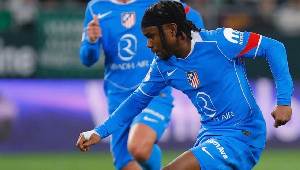Market capitalisation of BUA Foods Plc, owned by Nigeria’s second richest man, Abdul Samad Rabiu, has soared to N10.3 trillion as of Friday, August 8, following an 8.7 percent rise in its share price to N574.9, making it the most valuable stock on the country’s bourse.
This historic feat came barely one week after the fast-moving consumer goods giant recorded the highest profit in six years, supported by a 36 percent rise in revenue to N913 billion and a stable naira that returned the manufacturer to FX gain after swimming in losses in the past year.
BUA Foods has effectively surpassed MTN Nigeria, which closed trading on Friday at N10.1 trillion market capitalisation after it became the most capitalised stock on August 1, 2025.
Founded as a major player in Nigeria’s fast-moving consumer goods sector, BUA Foods processes, manufactures, and distributes food products across five divisions: sugar, flour, pasta, rice, and edible oils.
By market cap, manufacturing is ‘KING’ in Nigeria
Despite the macroeconomic headwinds and volatility that had shaken the manufacturing sector and shrunk its contribution to the country’s gross domestic product, of the three companies in the N10 trillion club, two—BUA Foods and Dangote Cement—are in the manufacturing sector, while MTN Nigeria falls within the telecommunication unit.
Dangote Cement, owned by Africa’s richest man, Aliko Dangote, was the first company to hit the N10 trillion threshold in January 2024 but has since seen a decline, dropping to N9.74 trillion on Friday. Analysts see Africa’s biggest cement maker’s stock rally and likely return to the ten-trillion-naira club on its record Q2 earnings.
BUA Foods bigger than GT, Zenith, UBA and Access combined
Rabiu’s BUA Foods is bigger in market capitalisation than the four biggest banks in Nigeria, underscoring the importance of manufacturing as a catalyst for growth in Africa’s most populous nation.
Guarantee Trust Company, the biggest bank in Nigeria by market cpaitalisation, boasts of N3.64 trillion; Zenith Bank follows with N3.07 trillion; UBA also has N1.99 trillion, while Access Holdings, the country’s biggest bank by asset, owns N1.47 trillion. But the four biggest banks put together at N10.17 trillion still didn’t match BUA Foods’ N10.3 trillion valuation.
BUA Foods’ latest surge positions it as the third company to hit the N10 trillion threshold. Its market capitalisation now accounts for about 11.2 percent of the entire Nigerian Exchange, according to African Stock Exchange data, a market analytics platform.
The FMCG giant’s valuation leap came after its share price rose from N528.90 to N574.90 in a single day, lifting its value from N9.52 trillion to N10.3 trillion. Its sister company, BUA Cement, currently has a market cap of N5.93 trillion.
Rabiu now becomes the richest man on the Nigerian stock exchange with N16.3 trillion in valuation.
Record H1 earnings fuel investor confidence
The bullish sentiment that fuelled BUA Foods’ valuation was the food manufacturer’s earnings report in the first half of 2025, which showed that net profit doubled year-on-year to N276.1 billion, while revenue surged to N912.5 billion, driven by broad-based growth across all product segments.
Notably, BUA Foods recorded a staggering 2,923 percent rise in rice revenue, highlighting the success of its strategic entry into Nigeria’s local rice value chain.
“We are encouraged by the sustained performance recorded in the second quarter of 2025, amidst an improving macroeconomic environment. Key indicators such as inflation and a deepened exchange rate margin, continue to shape consumer behaviour and operational decisions,” said Ayodele Abioye, managing director of BUA Foods.
“However, our resilience as a business remains evident through consistent topline and bottom-line growth driven by our time tested and unique strategic business model.”
Consumer goods firms are reaping big from an improved macroeconomic environment, buoyed by a more predictable currency and softening inflationary trend, which cooled to the lowest in almost two years in June 2025 to 22.2 percent.
Nigeria’s naira, prone to extreme volatility, has hovered around 1,550 to the dollar this year, helping provide stability to businesses like BUA Foods controlled by billionaire Abdul Samad Rabiu.
After booking a N54.7 billion forex loss a year earlier, BUA recorded a N407 million gain in H1 2025, amid a relatively stable naira and lower FX exposure. Finance costs rose 53 percent to N10.2 billion, reflecting continued pressure from interest rates despite a decline in total debt.
“Shareholders can be optimistic about BUAFOODS, knowing the stock has accrued 25% over the past four-week period alone—33rd best on NGX,” African Stock Exchange said.
Business News of Sunday, 10 August 2025
Source: www.businessday.ng
BUA Foods shares hit N1.3trn market cap
Entertainment












